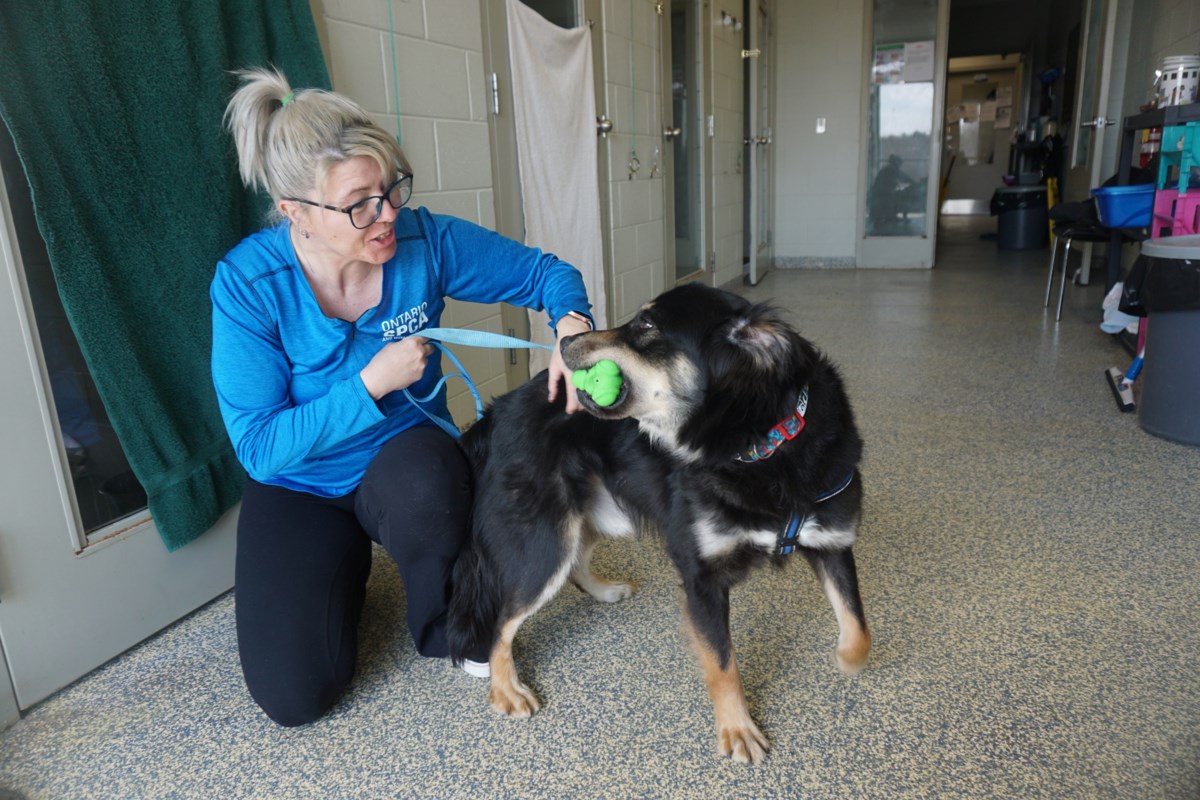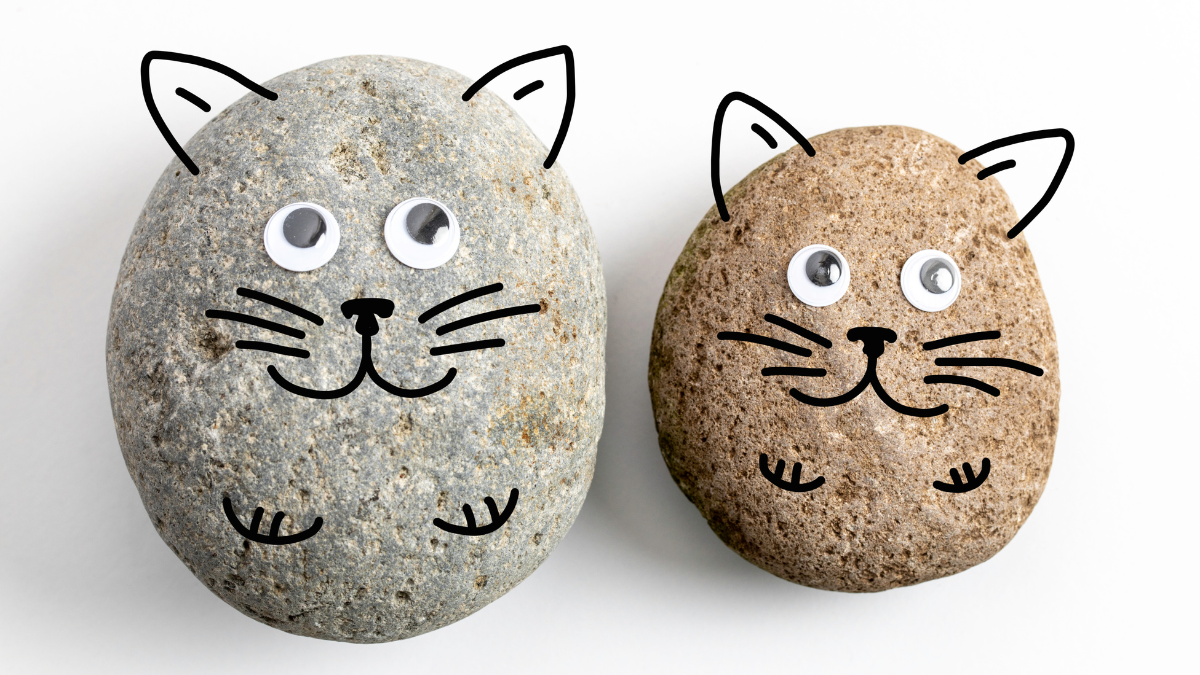As other jurisdictions ban certain procedures, provincial vet groups say they can't stop members from performing ‘medically unnecessary' procedures
Certain dog and cat surgeries are now considered cosmetic, but it remains to be seen whether Ontario veterinarians will follow the lead of their Québec counterparts by prohibiting these elective procedures.
“The Ontario SPCA and Humane Society opposes non-therapeutic veterinary procedures for cosmetic, aesthetic, behavioural or competitive purposes,” Midland and District Animal Centre community outreach coordinator Carolyn Gibson says.
“Surgical procedures such as tail docking, ear cropping, devocalization and declawing impact, with varying severity and duration, an animal’s ability to experience the Five Freedoms.”
In February, Québec started banning the declawing of cats and three other animal surgeries with the head of the province’s veterinarians’ professional order saying that it is inhumane to endanger animals when the desired effect is purely aesthetic.
The Ordre des médecins vétérinaires du Québec’s (OMVQ) banned procedures also include ear tail trimming for dogs and removal of vocal cords.
While local veterinarians approached for this story either didn’t return phone calls or didn’t want to participate in the story for fear of reprisals from existing and potential clients, College of Veterinarians of Ontario registrar and CEO Jan Robinson says that her organization can’t institute a ban on its own.
Robinson says owners of animals in Ontario continue to retain the right to request and consent to surgeries on an animal, this is inclusive of surgeries which the general public may refer to as “cosmetic” in nature.
“The college council has had many discussions on medically unnecessary surgeries,” Robinson says, noting the college doesn’t use the word ‘cosmetic’, but rather ‘medically unnecessary', adding that “it’s not required and isn't in the interest of the animal.”
OMQV president Dr. Gaston Rioux says the changes reflect the fundamental values of the professional order as well as Québec society, in general, concerning the well-being of animals.
He said many veterinary clinics had stopped practising feline declawing, under the order’s advice, but only the Quebec government had the power to formally prohibit it.
“This is not a movement that is unique to Quebec,” Rioux explains. “Worldwide, this is the type of surgery that is prohibited and also discouraged.”
In Canada, Ontario is the only province that has not yet banned the declawing of cats. A provision in Québec’s new regulation prohibits travelling to have an animal undergo prohibited surgery outside the province.
Members of the Alberta Veterinary Medical Association voted to outlaw the procedures in 2019.
“This is an important step forward for our profession and for animal welfare in this province,” Dr. Darrell Dalton, registrar of the western Canadian association, explained at the time.
“I’m grateful for our members who have demonstrated such a profound commitment to their role as guardians of animal welfare in our province.”
André Lamontagne, Québec’s minister of agriculture, fisheries and food, says his government decided to move ahead with the ban as domestic animals take “an increasingly important place in the lives” of Quebécers.
“Animal welfare is one of our priorities,” Lamontagne explains in a release. “I am happy with the entry into force of this new regulation which will greatly improve the quality of life of our pets. We all have a role to play in ensuring their well-being and safety.”
According to Robinson, part of the issue in Ontario is the fact that animals remain, by legal definition, property.
“The owner is in a place where they can do what they want,” she says, adding this is a “pinch point” that Ontario needs to deal with first if it wants to make a societal change to ban these types of procedures.
“We haven’t dealt with the societal issue. We’re very supportive of society making a change.”
Robinson says that even within the Ontario College of Physicians there remain controversial procedures conducted such as cosmetic surgery for children like changing the shape of an ear.
But in Ontario, decisions over “medically unnecessary” procedures are still made between the veterinarian and a client without oversight from the college, Robinson acknowledges.
Robinson says a dog working on a farm herding cattle, for example, might need its tail cropped to ensure it doesn't get broken during the performance of its duties.
“It’s not the place of the college to start to tell a veterinarian what to do,” she says, adding there can be a Catch-22 dilemma where a cat owner might have tried everything to get their feline to stop wrecking the furniture, but nothing’s worked.
So, in that case, Robinson says the owner might decide to take the cat to a shelter where overcrowding could lead to it eventually being euthanized.
“What we don’t want to do is inadvertently tie (the veterinarian’s) hands in the best interest of animals,” she says.
According to Robinson's organization, society continues to raise concerns related to the performance of unnecessary surgery, and more specifically to the altering of an animal [ear cropping, tail docking (cows, dogs) or nicking (horses), declawing] where there is no medical reason to support the procedure.
“Veterinarians, as advocates of animal welfare, are generally not supportive of any procedure on an animal that is neither necessary nor based on sound scientific evidence,” it notes. The interplay between these competing interests and positions presents a constant ethical dilemma for the veterinarian.”
As a voluntary association, the Ontario Veterinary Medical Association doesn’t have the authority to ban procedures, but CEO John Stevens says the association believes that cosmetic surgery is unnecessary and opposes the surgical alteration of any animal for purely cosmetic reasons.
“We have been actively lobbying the province for several years to incorporate a ban on medically unnecessary surgery, including partial digital amputation (declaw), canine ear cropping, canine tail docking, canine dewclaw removal and devocalization, in the regulations of the PAWS Act, the government’s new animal welfare legislation,” Stevens told MidlandToday.
“We’re hopeful that Ontario will move in the same direction of other provinces that have banned these procedures.”
In Ontario, the PAWS (provincial animal welfare services) Act covers the lives of pets and is overseen by the Ministry of the Solicitor General. A request for comment regarding the act hadn't been received by press-time.
While NDP MPP Marit Stiles earlier introduced legislation to ban the declawing of cats, it didn’t move forward.
Robinson says she’s heard from another MPP who plans to introduce a bill that would ban “medically unnecessary” procedures. She, however, declined to provide the MPP’s name to MidlandToday since it's still in the planning stages.
Robinson points out that besides Quebec, Nova Scotia also has a very good bill concerning cosmetic procedures while other countries like Australia and the United Kingdom have also banned the procedures.
“It is no longer taught in schools so new graduates wouldn’t know (how to conduct the procedures),” Robinson says. “I think every organization has to make their own choices based on how they manage regulations. The college is not an advocacy association.”
Dr. Caroline Kilsdonk, a former OMVQ president, says the cutting of ears and tails as well as the removal of vocal cords have not been practised by veterinarians in her province for several years.
Many veterinarians say the now-banned operations are not only futile for the well-being of pets, they can also cause harmful effects on animal health and behaviour.
Rioux says the surgeries carry operational risks linked, among other things, to the general anaesthesia animals must undergo during the procedures. He said it is inhumane to endanger animals when the desired effect is purely aesthetic.
As an example, he notes that 30 per cent of declawed cats have behavioural and aggression problems and 15 per cent will bite more and the operation can actually make the animal’s paw pads more sensitive.
“This can lead the cat to do their business outside of the litter box because of the pain caused by the small rocks,” he adds.
Ear trimming was traditionally performed on dogs to meet the aesthetic standards of certain breeds. Rioux cited the example of the Doberman, whose beauty standards include pointy ears.
And while Robinson says that tail trimming is conducted to prevent fractures for working and hunting dogs, Kilsdonk says the practice is now obsolete since recent studies show “dogs that hunt have become rare and tail injuries are even rarer.”
Vocal cord removal was done on an animal, usually a dog, so they would be less noisy, but Kilsdonk says the procedure is similar to feline declawing as it’s an operation normally only performed to ensure the pet owner’s comfort without considerations for the pet.
“It’s not considered very humane, because if a dog barks excessively, they surely have an anxiety or boredom problem,” Kilsdonk says. “We’re only dealing with the symptom and not the cause of the problem.”
–with a file from La Presse Canadienne









